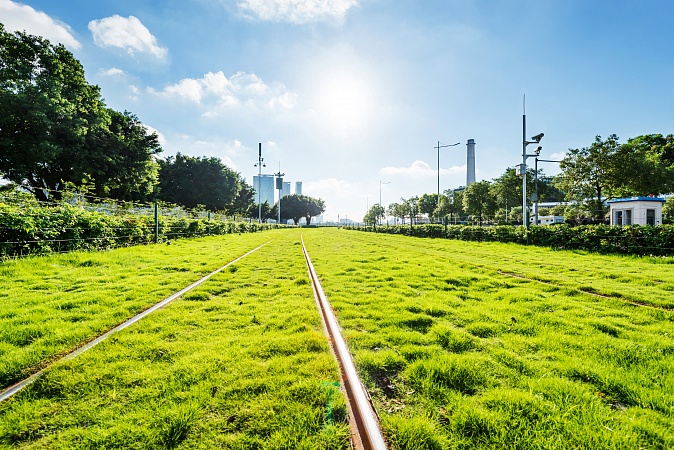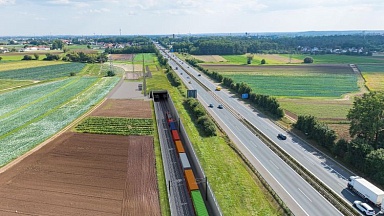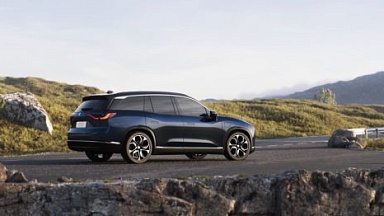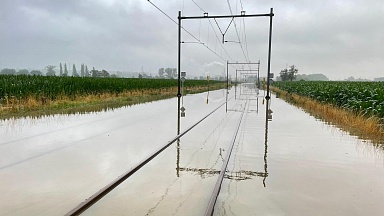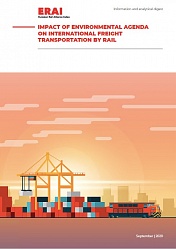In implementing its sustainable business strategy, Mercedes-Benz Cars is taking the next step towards CO₂-neutral mobility: since the beginning of the year, all of Mercedes-Benz’s rail transport logistics with Deutsche Bahn have been converted to CO₂-free energy sources. This means that all production materials for Mercedes-Benz passenger car plants in Germany, as well as for the Kecskemét, Hungary plant, are now transported by rail using green energy.
Mercedes-Benz Cars is working continuously to optimise its global logistics network. The company has been continuously expanding its use of the rail network in particular, and has been focusing on sustainable and digital innovations. Together with its logistics partner Deutsche Bahn, Mercedes-Benz Cars has now reached a new milestone in its inbound logistics: its rail transport of vehicle components is from now on CO₂-free. This applies for the Mercedes-Benz plants in Bremen, Rastatt, Sindelfingen, Hamburg, Kuppenheim, Untertürkheim and MDC Power GmbH in Kölleda, Germany, as well as for the plant in Kecskemét, Hungary. The rail transport translates to approximately 270 truck-loads a day that no longer require ground shipping.
«Sustainability has always been an integral part of the Mercedes-Benz Cars global production network. The reduction of CO₂ is one of our central areas of activity, and one which we are systematically addressing at our more than 30 plants and in our logistics. Our objective is to achieve a more sustainable and eco-friendly transport mix across our entire global logistics network. The conversion to CO₂-free rail transport is a very important step in this respect», says Jörg Burzer, Member of the Board of Management of Mercedes-Benz AG, Production and Supply Chain Management.
The green energy which the company uses for its rail transport in Germany and Austria comes solely from domestic renewable energy sources. A majority of the green energy is currently produced at hydro-electric power stations.
«The focus of our logistics concepts is on CO₂ emissions, as well as costs, duration and transport quality. When selecting our logistics service providers, sustainability is an important criterion — and this can range from using eco-friendly equipment to deploying low-emission trucks in accordance with the latest European norm or using alternative drive technologies», according to Elke Pußkeiler, Head of Supply Chain Management Mercedes-Benz Cars.
As part of its «Ambition2039» initiative, Mercedes-Benz Cars has set comprehensive objectives for climate protection: the company thereby aims to offer a fully CO₂-neutral new vehicle fleet by 2039. By 2030 more than half of its vehicles on the road are scheduled to have an electric drive system — a figure that includes all-electric passenger cars and plug-in hybrids.
CO₂-neutral production is an important milestone: Starting in 2022, all of our own Mercedes-Benz Cars and Vans plants will be fully CO₂-neutral. New plants are already being planned according to this premise. At the Mercedes-Benz Sindelfingen plant, Factory 56, which serves as a blueprint for future plants in terms of state-of-the-art production technologies, environmental protection, and resource conservation, will be supplied with CO₂-neutral energy as soon as it begins operations. A photovoltaic system has been installed on the roof, which supplies the plant with 5000 MWh of self-generated, green energy per year. The smart plant in Hambach (France) already obtains its energy supply from renewable sources (green power, biogas) and produces on a CO₂-neutral basis. The Mercedes-Benz plant in Jawor (Poland) will also produce on a CO₂-neutral basis in the future.
In Germany Mercedes-Benz AG will also obtain power from German wind farms, which will lose their subsidies in 2020 under Renewable Energy Sources Act (EEG) legislation. Mercedes-Benz AG is the first major industrial customer to obtain power from this source, and is thereby ensuring the long-term operation of six northern German wind farms.
